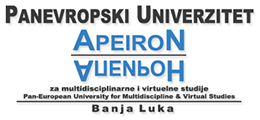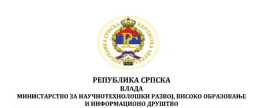Motivation for Recreational Exercise in Relation to Gender and Age Differences
Volume 11, Issue 2 (2021)
Volume 11, Issue 2 (2021)
Motivation for Recreational Exercise in Relation to Gender and Age Differences
Abstract:
The aim of this research is to identify the motivational structure of recreational exercisers and to investigate differences in motivation with respect to gender, ie to determine the hierarchy of motives for which they choose recreational exercise. This research shows that the strongest motivation for recreational exercise is maintaining and improving health, and certainly relaxation. After them, the most important motivation is socializing and meeting new people, and improving and maintaining physical ability. The research also showed that there are very small differences in the motives for exercise in relation to the age of the respondents, and they are reflected in good looks and fun, while relaxation and relaxation and improvement and maintenance of physical ability are equally important for all ages.
Keywords:
Recreational exercise, motivation, gender and age differences.
Full Text:
DOI:
References:
Berger, B., Pargman, D., & Weinberg, R. (2007). Foundations of Exercise Psychology. Chapter 3, Exercise and quality of life. Inc, U.S. Fitness Information Technology. 40-64.
Campbell, W.K., Sedikides, C., & Harackiewicz, J.M. (2000). Competence valuation as a strategic intrinsic motivation process. Personality and Social Psychology Bulletin, 26 (7), 780-794.
Deci, E.L., & Ryan, R.M. (1985). Motivation and self determination in human behavior. NY: Plenum Publish Co.
Deci, E.L., & Ryan, R.M. (1995). Self-Determination Theory and the Facilitation of Intrinsic Motivation, Social Development and Well-Being. University of Rochester.
Ebben, W., Brudzynski L. (2008). Motivations and barriers to exercise among college students. Journal of Exercise Physiology Online. 11(5):1-10.
Fishbein, M., & Ajzen, I. (1975). Belief, Attitude, Intention, and Behavior: An Introduction to Theory and Research. Reading, MA: Addison- Wesley.






